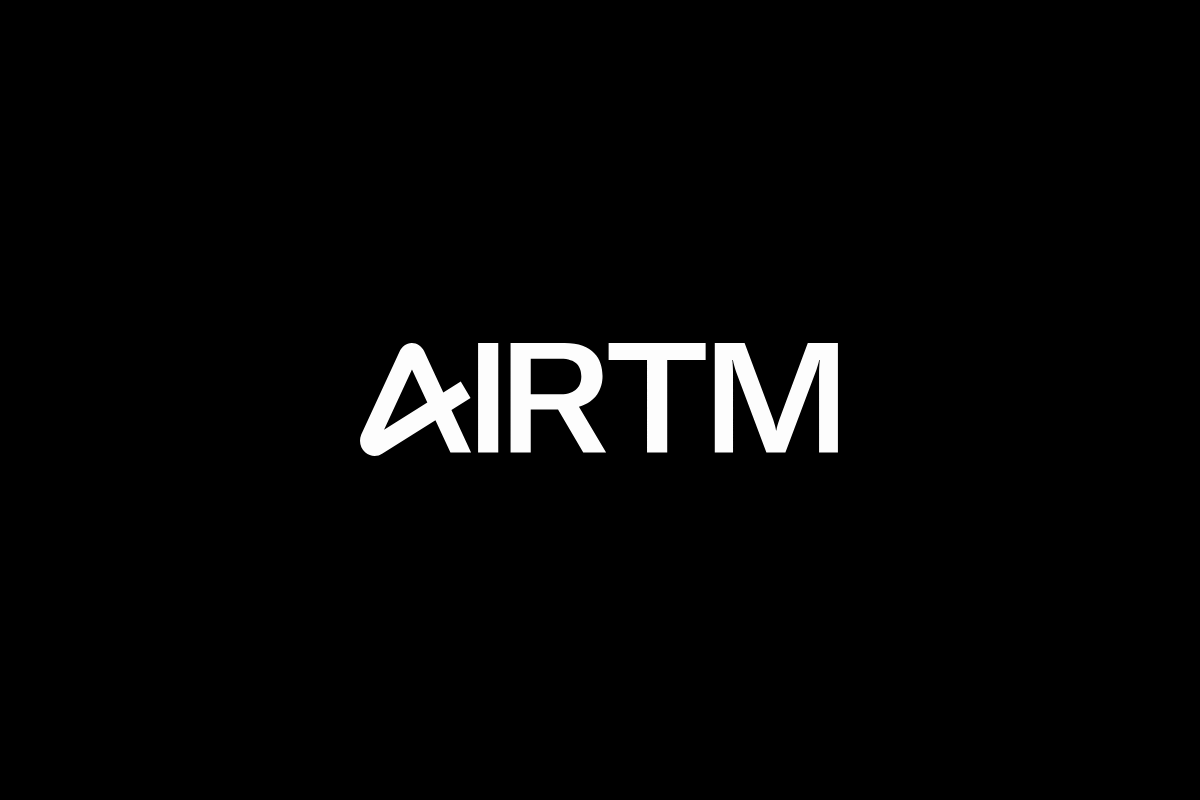Fintech
AI’s role in enhancing transaction monitoring and compliance

In the complex landscape of global finance, the battle against money laundering and terrorism financing is intensifying.
In a recent whitepaper by RelyComply, the company took a deep dive into the world of AI and transaction monitoring and asked: is this the next frontier?
According to the RegTech company, criminals have become adept at exploiting the digital avenues offered by the internet age, posing significant challenges to financial institutions. Adopting artificial intelligence (AI) in transaction monitoring represents a pivotal shift in this ongoing struggle, promising a more effective defence against the flow of illicit funds.
The escalation of financial crime has rendered traditional, hands-on monitoring methods outdated and ineffective. With vast datasets to scrutinise, the need for automated systems to detect suspicious activity in real-time and identify transactional trends has never been more apparent.
In the view of RelyComply, AI’s role in this context is not merely an addition; it is a fundamental reimagining of transaction monitoring strategies designed to keep institutions a step ahead of criminal endeavours.
The synergy between human expertise and AI technology marks a significant evolution in compliance procedures. AI’s advanced data processing and anomaly detection capabilities effectively address manual monitoring limitations, such as the high incidence of false positives.
This fusion of technology and human insight creates more efficient compliance teams capable of responding swiftly and accurately to potential threats.
The financial and moral implications of failing to combat fincrime are profound. RelyComply stated in the whitepaper that with fines exceeding $10 billion in 2020 for non-compliance and the proceeds of crime funding activities like forced prostitution, drug trafficking, and terrorism, the stakes could not be higher. The global GDP affected by money laundering is estimated to be between 2 and 5%, highlighting the vast scale of the problem.
As regulations tighten and non-compliance costs mount, financial institutions are under increasing pressure to enhance their Anti-Money Laundering (AML) and Know Your Customer (KYC) systems.
The COVID-19 pandemic has added to these challenges, with many firms prioritising business continuity over compliance investments. However, the advent of AI in transaction monitoring offers a beacon of hope, providing a more efficient means of identifying and reporting suspicious activities.
AI’s role in this new compliance landscape is twofold: reducing false positives and detecting anomalous behaviour. Yet, despite its advanced capabilities, the human element remains crucial. Analysts are essential for interpreting AI-generated data and making informed decisions about the risk of criminal activity.
The blend of AI technology and human expertise represents the future of financial crime detection, promising a more secure and compliant financial system.
RelyComply explained in the whitepaper that AI epitomises the zenith of computer systems’ capability to replicate human cognitive functions such as learning, logical reasoning, and problem-solving. This technology employs data models to analyse occurrences and recommend actions decisively. Within financial technology, or FinTech, AI’s application has rapidly evolved, significantly altering the landscape of banking operations and customer service.
Machine learning (ML), a subset of AI, underscores how a computer enhances its intelligence over time through self-learning. This process is fueled by analysing patterns within data models, a task meticulously refined by data scientists. The interchangeable use of ‘machine learning’ and ‘data science’ highlights their intertwined roles in advancing AI’s capabilities.
Generative AI (GenAI), propelled into the limelight by its success in natural language processing tools like ChatGPT and image generation from user prompts, represents a significant leap forward. GenAI is increasingly becoming essential in the banking sector, enhancing user experiences through virtual assistants, personalising financial content, and streamlining product testing processes.
The global adoption of AI within finance is witnessing a significant surge, a stark contrast to the 29% adoption rate reported by Gartner in 2022. This upward trend is attributed to AI’s potential to refine banking operations and contribute to business value.
AI’s role in AML compliance stands out for its automation and data analysis capabilities, particularly in risk management. It provides efficient shortcuts for administrative tasks and leverages extensive data analysis to identify suspicious activities swiftly and accurately.
AI’s utility in transaction monitoring is profound, especially in reducing false positives and enhancing the detection of anomalous payments. By analysing historical data, AI can predict the risk associated with new alerts, improving the efficiency of AML compliance processes. Additionally, AI facilitates anomaly detection by comparing recent account behaviours with historical data, thus identifying unusual activities that could indicate criminal intentions.
However, deploying AI in transaction monitoring presents challenges, including the need for transparency, mitigating biases, and addressing model drift. These considerations are vital to ensuring that AI’s decision-making processes are ethical, interpretable, and adaptable to changing financial and criminal patterns.
Furthermore, integrating AI in financial AML systems requires a balanced approach between leveraging technological advancements and maintaining human expertise. In the view of RelyComply, the role of compliance teams and the implementation of regulatory technology RegTech are crucial in navigating the regulatory landscape and ensuring AML compliance.
Full whitepaper available at: relycomply.com
Article source: fintech.global
The post AI’s role in enhancing transaction monitoring and compliance appeared first on HIPTHER Alerts.
Fintech
Fintech Pulse: Your Daily Industry Brief (Chime, ZBD, MiCA)

As we close out 2024, the fintech industry continues to deliver headlines that underscore its dynamism and innovation. From IPO aspirations to groundbreaking regulatory milestones, today’s updates highlight the transformative power of fintech partnerships, regulatory evolution, and disruptive technologies. Here’s what you need to know.
Chime’s Quiet Step Toward Public Markets
Chime, the U.S.-based financial technology startup best known for its digital banking services, has taken a significant step by filing confidential paperwork for an initial public offering (IPO). As one of the most valuable private fintechs in the U.S., Chime’s move could potentially signal a renewed appetite for fintech IPOs in a market that has been cautious following fluctuating valuations across the tech sector.
With a valuation that reportedly exceeded $25 billion in its last funding round, Chime’s IPO could set a new benchmark for the industry. Observers note that its strong customer base and revenue growth may make it an appealing choice for investors seeking to capitalize on the digital banking boom. However, the timing and success of the IPO will depend on broader market conditions and the regulatory landscape.
Source: Bloomberg
ZBD’s Pioneering Achievement: EU MiCA License Approval
ZBD, a fintech company specializing in Bitcoin Lightning network solutions, has made history by becoming the first to secure an EU MiCA (Markets in Crypto-Assets Regulation) license. This landmark approval by the Dutch regulator positions ZBD at the forefront of compliant crypto-fintech operations in Europe.
MiCA, which aims to harmonize the regulatory framework for crypto-assets across the EU, has been a focal point for industry players aiming to establish legitimacy and expand their offerings. ZBD’s achievement not only validates its operational rigor but also sets a precedent for other fintech firms navigating the evolving regulatory landscape.
Industry insiders view this as a strategic advantage for ZBD as it broadens its footprint in Europe. By leveraging its regulatory approval, the company can accelerate its product deployment and establish trust with institutional and retail users alike.
Source: Coindesk, PR Newswire
The Fintech-Credit Union Synergy: A Blueprint for Innovation
The convergence of fintechs and credit unions continues to reshape the financial services ecosystem. Collaborative initiatives, such as the one highlighted in the recent partnership between fintech innovators and credit unions, are proving to be a potent force in delivering tailored financial solutions.
This “dream team” approach allows credit unions to leverage fintech’s technological expertise while maintaining their community-focused ethos. Key areas of collaboration include digital payments, personalized financial management tools, and enhanced loan processing capabilities. These partnerships not only enhance member engagement but also enable credit unions to remain competitive in an increasingly digital-first financial environment.
Industry analysts emphasize that such collaborations underscore a broader trend of traditional financial institutions embracing fintech-driven solutions to bridge service gaps and foster innovation.
Source: PYMNTS
Tackling Student Loan Debt: A Fintech’s Mission
Student loan debt remains a pressing issue for millions of Americans, and a Rochester-based fintech aims to offer relief through its cloud-based platform. This innovative solution is designed to simplify loan management and provide borrowers with actionable insights to reduce their debt burden.
The platform’s features include repayment optimization tools, personalized financial education, and seamless integration with loan servicers. By addressing the complexities of student loan management, this fintech is empowering borrowers to make informed decisions and achieve financial stability.
As the student loan crisis continues to evolve, solutions like this highlight the critical role fintech can play in addressing systemic financial challenges while fostering financial literacy and inclusion.
Source: RBJ
Industry Implications and Takeaways
Today’s updates underscore several key themes shaping the fintech landscape:
- Regulatory Milestones: ZBD’s MiCA license approval exemplifies the importance of regulatory compliance in unlocking growth opportunities.
- Strategic Partnerships: The collaboration between fintechs and credit unions demonstrates the value of combining technological innovation with traditional financial models to drive customer-centric solutions.
- Market Opportunities: Chime’s IPO move reflects a potential revival in fintech public offerings, signaling confidence in the sector’s long-term prospects.
- Social Impact: Fintech’s ability to tackle systemic issues, such as student loan debt, showcases its role as a force for positive change.
The post Fintech Pulse: Your Daily Industry Brief (Chime, ZBD, MiCA) appeared first on News, Events, Advertising Options.
Fintech
SPAYZ.io prepares for iFX EXPO Dubai 2025

Leading global payments platform SPAYZ.io has confirmed it will be attending iFX EXPO Dubai 2025 on 14 to 16 January. Exhibiting at Stand 64 at Trade Centre Dubai, SPAYZ.io’s team of professionals will be on hand providing live demonstrations of its renowned payment services for payment providers. Attendees will also receive exclusive insight into SPAYZ.io’s plans for 2025 alongside early early access to its upcoming plans for the new year.
SPAYZ.io delivers a host of payment solutions that leverage the latest technological innovations and open access to the fastest growing emerging markets across Africa, Europe and Asia. Over the past year, there has been huge demand for its Open Banking and local payment method services, alongside bank transfers, mass payouts, online banking and e-wallets.
Yana Thakurta, Head of Business Development at SPAYZ.io commented: “We look forward to once again participating at iFX Dubai to expand our network of partners and clients. It’s a fantastic way to kick off the year, connecting with thousands of industry leaders from FOREX platforms to trading companies, and everything in between.
“Our key goal for iFX Dubai EXPO 2025 is to expand our portfolio of solutions and geographies. We’re using this as an opportunity to partner with like-minded entities who share our ambition to provide payment solutions that are truly global.”
Come meet SPAYZ.io’s team at the Trade Centre Dubai at Stand 64. You can also book a meeting slot with a member of a team.
The post SPAYZ.io prepares for iFX EXPO Dubai 2025 appeared first on News, Events, Advertising Options.
Fintech
Airtm Enhances Its Board of Directors with Two Strategic Appointments

Airtm, the most connected digital dollar account in the world, is proud to announce the addition of two distinguished industry leaders to its Board of Directors: Rafael de la Vega, Global SVP of Partnerships at Auctane, and Shivani Siroya, CEO & Founder of Tala. These appointments reflect Airtm’s commitment to innovation and financial inclusion as the company enters its next phase of growth.
“We are thrilled to welcome Rafael and Shivani to Airtm’s Board of Directors,” said Ruben Galindo Steckel, Co-founder and CEO of Airtm. “Their unique perspectives and proven track records will be invaluable as we continue scaling our platform to empower individuals and businesses in emerging markets. Together, we’ll push the boundaries of financial inclusion and innovation to create a more connected and equitable global economy. Rafael and Shivani bring a wealth of experience and strategic insight that will strengthen Airtm’s mission to connect emerging economies with the global market.”
Rafael de la Vega, a seasoned leader in fintech global partnerships and technology innovation, is currently the Global SVP of Partnerships at Auctane. With a proven track record of delivering scalable, impactful solutions at the intersection of fintech, innovation, and commerce, Rafael’s expertise will be pivotal as Airtm continues to grow. “Airtm has built a platform that breaks down barriers and opens up opportunities for people in emerging economies to connect to global markets. I am excited to contribute to its growth and help further its mission of fostering financial inclusion on a global scale,” said Rafael.
Shivani Siroya, CEO and Founder of Tala, is a pioneer in financial technology, renowned for empowering underserved communities through access to credit and essential financial tools. Her leadership in leveraging data-driven innovation aligns seamlessly with Airtm’s vision of creating more equitable financial opportunities. “Empowering underserved communities has always been at the core of my work, and Airtm’s mission resonates deeply with me. I’m thrilled to join the Board and work alongside such a dynamic team to expand access to financial tools that truly make a difference in people’s lives,” said Shivani.
The post Airtm Enhances Its Board of Directors with Two Strategic Appointments appeared first on News, Events, Advertising Options.
-

 Fintech6 days ago
Fintech6 days agoFintech Pulse: Your Daily Industry Brief (Synapse, Shenzhen Institute, Visa, AutomatIQ, MeridianLink)
-

 Fintech5 days ago
Fintech5 days agoFintech Pulse: Your Daily Industry Brief (Revolut, Bestow, Advyzon, Tyme Group, Nubank)
-

 Fintech3 days ago
Fintech3 days agoFintech Pulse: Your Daily Industry Brief (Chime, ZBD, MiCA)
-

 Fintech6 days ago
Fintech6 days agoAsian Financial Forum returns as region’s first major international financial assembly in 2025
-

 Fintech6 days ago
Fintech6 days agoNASDAQ-Listed LYTUS Appoints Visionary Leader Sai Guna Ranjan Puranam as COO (Lytus Healthcare) and Group CTO (Lytus Technologies) to Revolutionize Healthcare and Technology
-

 Fintech PR2 days ago
Fintech PR2 days agoAccording to Tickmill survey, 3 in 10 Britons in economic difficulty: Purchasing power down 41% since 2004
-

 Fintech4 days ago
Fintech4 days agoAirtm Enhances Its Board of Directors with Two Strategic Appointments
-

 Fintech PR2 days ago
Fintech PR2 days agoPresident Emmerson Mnangagwa met this week with Zambia’s former Vice President and Special Envoy Enoch Kavindele to discuss SADC’s candidate for the AfDB




